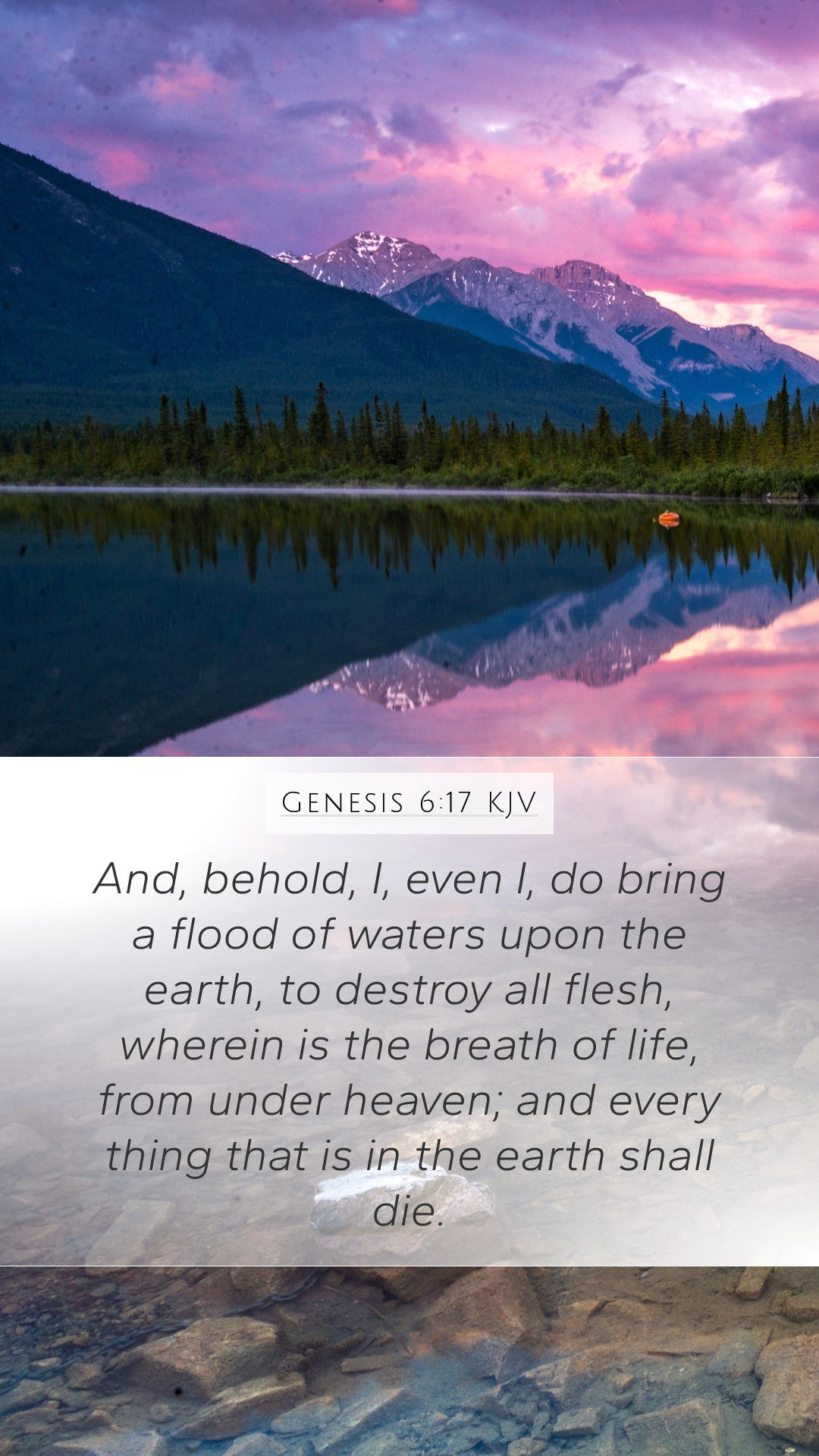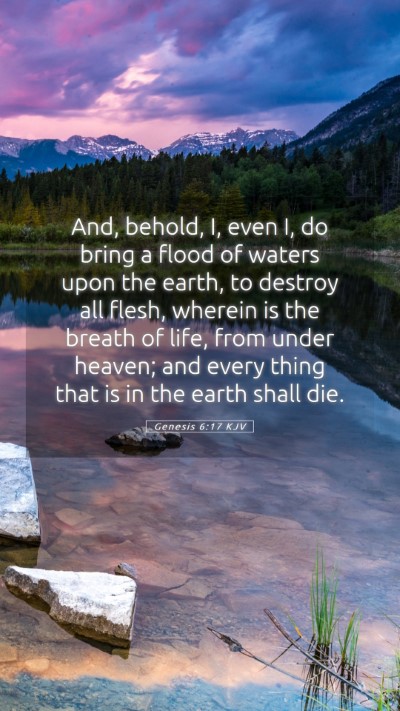Genesis 6:17 - Bible Verse Meaning and Commentary
Bible Verse: Genesis 6:17 - "And behold, I, even I, do bring a flood of waters upon the earth, to destroy all flesh, wherein is the breath of life, from under heaven; and every thing that is in the earth shall die."
Summary of Biblical Context
This verse occurs within the narrative of Noah and the impending flood, marking a crucial moment in biblical history. God reveals His plan to cleanse the earth, highlighting His judgment upon humanity due to their wickedness. The verse emphasizes God's authority and the severity of His decision, setting the stage for Noah's mission of preservation.
Insights from Public Domain Commentaries
-
Matthew Henry:
Henry notes that this declaration from God showcases His sovereignty. The flood is presented as a divine act of both judgment and purification. The omnipotence of God is evident as He prepares to execute a plan that will alter the course of creation. Henry also emphasizes the seriousness of sin and the lengths to which God goes to address it.
-
Albert Barnes:
Barnes highlights the flood's role as a significant divine intervention, marking a shift in humanity's history. He explains the notion of "breath of life," indicating that only those creatures imbued with God's spirit are affected by this judgment. Barnes suggests that this verse reflects the depth of human depravity, necessitating extreme measures from God.
-
Adam Clarke:
Clarke elaborates on the character of the flood as a means of divine wrath against a corrupt society. He presents an understanding of God’s mercy juxtaposed with His justice, noting that while destruction looms, there is a preservation motive seen in Noah’s story. Clarke also connects the flood narrative to themes of redemption and new beginnings.
Understanding the Flood Narrative
Genesis 6:17 is pivotal for understanding the flood narrative, where God's intention to cleanse the earth signifies not just a destructive force but the hope for restoration. Through this act, God demonstrates His readiness to uphold justice while simultaneously providing a means for salvation through Noah's Ark.
Application in Today's Context
The relevance of Genesis 6:17 extends beyond the ancient world, reminding contemporary readers of the consequences of sin and the importance of righteousness. It serves as a sobering reflection on God's justice as well as an assurance of His mercy manifest through the story of Noah. This balance encourages believers to strive for holiness and to trust in God's promises.
Related Cross References
- 2 Peter 2:5: "And spared not the old world, but saved Noah the eighth person, a preacher of righteousness, bringing in the flood upon the world of the ungodly."
- Matthew 24:38-39: "For as in the days that were before the flood they were eating and drinking, marrying and giving in marriage, until the day that Noah entered into the ark..."
- Hebrews 11:7: "By faith Noah, being warned of God of things not seen as yet, moved with fear, prepared an ark to the saving of his house; by the which he condemned the world, and became heir of the righteousness which is by faith."
Conclusion
Genesis 6:17 stands as a profound verse in understanding the character of God, the reality of sin, and the promise of salvation. The combination of divine justice and mercy throughout this account draws believers into deeper exploration of biblical truths. Engaging in Bible study groups, leveraging Bible study tools, and utilizing online Bible study resources can enhance one's comprehension of such verses, enabling a fuller grasp of their meanings and applications.


